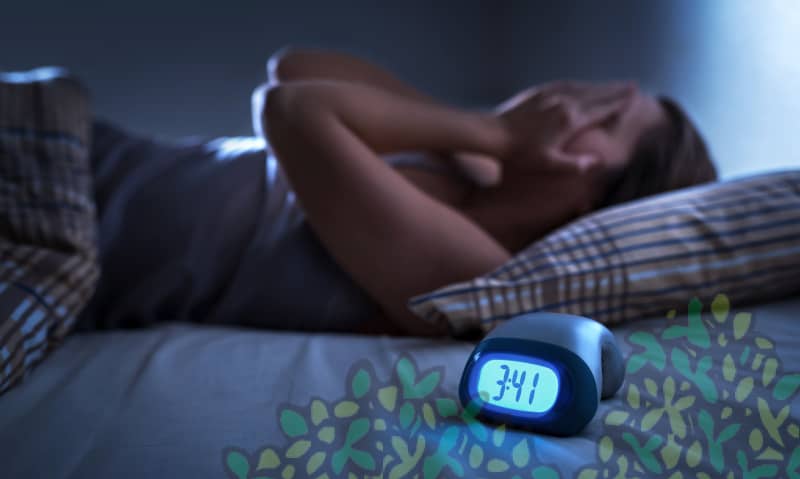What To Do When TMJ Pain Is Keeping You Awake at Night

Is your TMJ disorder causing you to lose sleep?
Do you have trouble sleeping at night? If so, you’re not alone. The Sleep Foundation indicates that between 10% and 30% of adults struggle with chronic insomnia. But did you know that temporomandibular joint disorder (TMD) can be a cause of poor sleep? Your temporomandibular joint, or TMJ, connects your lower jaw and skull. When you experience jaw pain, difficulty chewing, clicking, or locking that keeps you awake, you could be suffering from TMD. Helping you get a better night’s sleep through appropriate treatment is just one of those little-known things that dentists do.
The Effects of TMD
If you have ever experienced jaw pain, then you know it is no fun. It can have a severe effect on your TMJ and the muscles in your face, shoulder, head, and neck. Most people suffering from TMD will experience the following symptoms:
- Joint pain
- Muscle pain
- Headaches
- Clicking or popping
- Trouble opening
- Locked or partially locked jaw
- Difficulty sleeping
Some people’s TMD symptoms come and go, but others’ develop into chronic issues. These can harm your ability to talk, eat, and swallow. TMD can not only impact your sleep but also your overall well-being.
How TMD Interferes With Healthy Sleep
On average, healthy adults should receive between seven and nine hours of sleep per night. But when you have TMD, sleep can be hard to come by. Typical sleep problems associated with TMD include the following:
- Sleep apnea: This potentially serious disorder occurs when your breathing repeatedly stops and starts during sleep. If you are a loud snorer and feel tired even after seven to nine hours of sleep, you might suffer from sleep apnea. It is also associated with problems such as jaw misalignment.
- Bruxism: Though bruxism, or teeth grinding, doesn’t necessarily cause TMD, they are often correlated. If you have a misaligned jaw, you may grind your teeth subconsciously. Unfortunately this can make your jaw problems worse. As medications aren’t an effective treatment of bruxism, your dentist may prescribe the use of a nightguard. These devices are designed to keep your teeth separated to help prevent tooth damage caused by clenching and grinding. Nightguards are typically made of either hard or soft plastic and are custom designed to fit over your upper or lower teeth.
- Headaches: TMJ pain often radiates down the neck, up toward the ear, and around the back of the head. Many sufferers confuse TMJ-related pain with migraines. Since TMD is often caused by bite alignment issues, dental treatments can help. Your dentist may suggest braces to help align your bite. Or if your TMD and associated headaches are tied to teeth grinding, your dentist might suggest a nightguard to keep your jaw relaxed while you sleep.
Poor sleep can impact your quality of life. When you don’t catch at least seven hours of sleep each night, you may be more prone to develop chronic diseases such as diabetes, heart disease, and high blood pressure. You are also more susceptible to moodiness, trouble concentrating, memory issues, weight gain, and a weakened immune system.
Stress is a trigger for TMJ-related complications.
It seems that American adults take on a lot of stress these days. Aside from dealing with an unprecedented pandemic, we face constant stress about money, work, job stability, the economy, family responsibilities, relationships, health, and more. Unfortunately, teeth grinding is often caused by stress and anxiety. And that grinding most often takes place while we sleep.
Nighttime bruxism can be related to acid reflux, hyperactivity, and sleep apnea. It can even be a side effect of anxiety medication. So if you are under a lot of stress and are waking up with mouth or jaw pain, you are probably grinding in your sleep. Seeing your family dentist, especially one who leverages neuromuscular dentistry, can help you get the comfort you need for a better night’s sleep.
Think you have a TMJ problem? See your dentist for an oral evaluation.
If you think you might be suffering from a TMJ-related problem, there is no time like the present to request an appointment with your dentist. The dentists at Berrien Dental in Berrien Springs and St. Joseph, Michigan, are well trained in neuromuscular dentistry and can help determine the source of your jaw pain. With the right treatment, you’ll be on your way to a pain-free jaw, a good night’s sleep, and a happy, healthy smile.